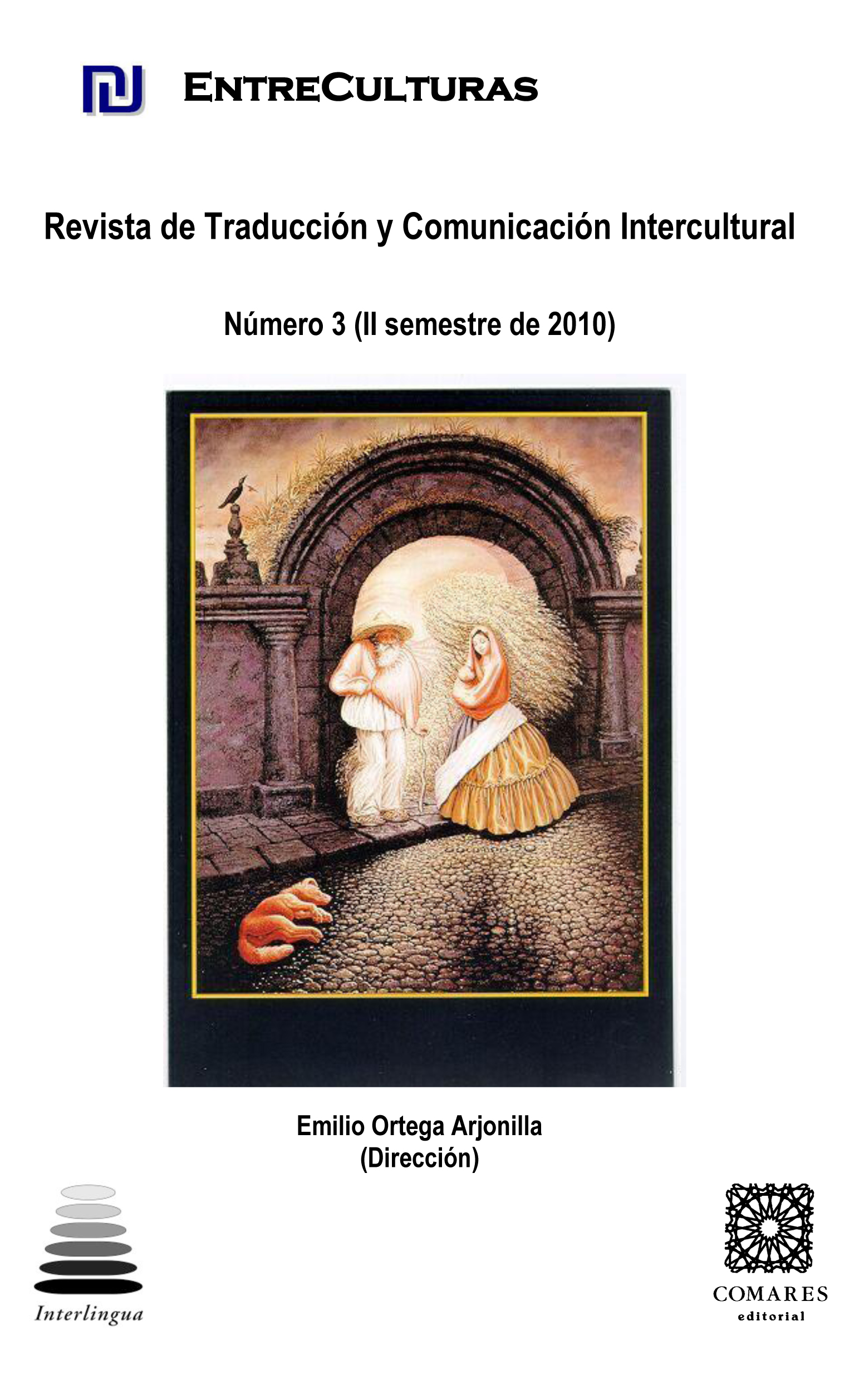EL GLOSARIO COMO HERRAMIENTA EN LA INTERPRETACIÓN CONSECUTIVA. ESTUDIO DE UN CASO PRÁCTICO: LA CONCILIACIÓN EN RUANDA
DOI:
https://doi.org/10.24310/Entreculturasertci.vi3.11678Keywords:
consecutive interpretation, bilateral interpretation, glossary, Rwanda, Yolande Mukagasana, genocideAbstract
In this article, we want to emphasize the relevance of the documentation process prior to the interpretation in the field of International Relations. We base on our research on a real consecutive and bilateral French- Spanish/Spanish-French interpretation where the focal point was the testimony of Yolande Mukagasana, a survivor of the Rwandan genocide that took place in 1994. As a result of the collection and study of parallel texts on the subject in Spanish and French, we propose an ad hoc glossary (French- Spanish and Spanish-French) – a useful tool for the interpreter who is faced with an interpretation about the Rwandan conflict (1990-1994).
Downloads
Metrics
References
DUTERME, Renaud (2010): Rwanda: un génocide évitable [en línea]: http://www.cadtm.org/Rwanda-un-genocide-evitable [consulta: 07-12- 2010].
HAZANAVICIUS, Michel y BORGES, Arnaud (2004): Tuez-les Tous ! (Rwanda: histoire d’un génocide « sans importance ») [en línea] http://www.youtube.com/watch?v=P3uLIfzWRUc [consulta: 21-11-2010].
MUKAGASANA, Yolande (1997): La mort ne veut pas de moi. Paris : Fixot, 1997.
? (1999): N’aie pas peur de savoir – Rwanda : une rescapée tutsi raconte. Paris : J‘ai lu.
? (2001): Les blessures du silence. Témoignages du génocide au Rwanda. Arles: Actes Sud et Médecins sans frontières.
SÈNOU, Arnold (2004): Tous complices du génocide rwandais [en línea]. http://www.afrik.com/article7185.html [consulta: 21-11-2010].
SIDIBÉ, Fatoumata (2005): "Yolande Mukagasana: 'J'accepte mon héritage du génocide car si je suis restée en vie, c'est pour remplir une mission" en Lettres de Belgique. [en línea]. Disponible en: http://aflit.arts.uwa.edu.au/AMINAMukagasana.html [consulta: 09-12- 2010].
RAMOS SORIANO, Sara (2009): "Entrevista a Yolande Mukagasana en Canal 2N" [en línea] (2009): http://www.youtube.com/watch?v=lP-DxaEPqJ8 [consulta: 10-12-2010].
OOZEBAP.ORG (2008): "Yolande Mukagasana: 'No tengo miedo a morir, sino a no decir toda la verdad y a no obrar con dignidad ante los africanos‘" [en línea]. Disponible en: http://www.oozebap.org/text/mukagasana.htm [consulta: 10-12-2010].
Downloads
Published
How to Cite
Issue
Section
License
All contents published in Entre culturas. Revista de traducción y comunicación intercultural are protected under the Creative Commons Attribution-NonCommercial-ShareAlike 4.0 International (CC BY-NC-SA 4.0) license. All about this license is available in the following link: <http://creativecommons.org/licenses/by-nc-sa/4.0>
Users can copy, use, redistribute, share and exhibit publicly as long as:
- The original source and authorship of the material are cited (Journal, Publisher and URL of the work).
- It is not used for comercial purposes.
- The existence of the license and its especifications are mentioned.
There are two sets of authors’ rights: moral and property rights. Moral rights are perpetual prerogatives, unrenounceable, not-transferable, unalienable, imprescriptible and inembargable. According to authors’ rights legislation, Entreculturas. Revista de traducción y comunicación intercultural recognizes and respects authors moral rights, as well as the ownership of property rights, which will be transferred to University of Malaga in open access. The property rights are referred to the benefits that are gained by the use or the dissemination of works. Entreculturas. Revista de traducción y comunicación intercultural is published in an open access form and it is exclusively licenced by any means for doing or authorising distribution, dissemination, reproduction, , adaptation, translation or arrangement of works.
Authors are responsable for obtaining the necessary permission to use copyrighted images.





7.png)
